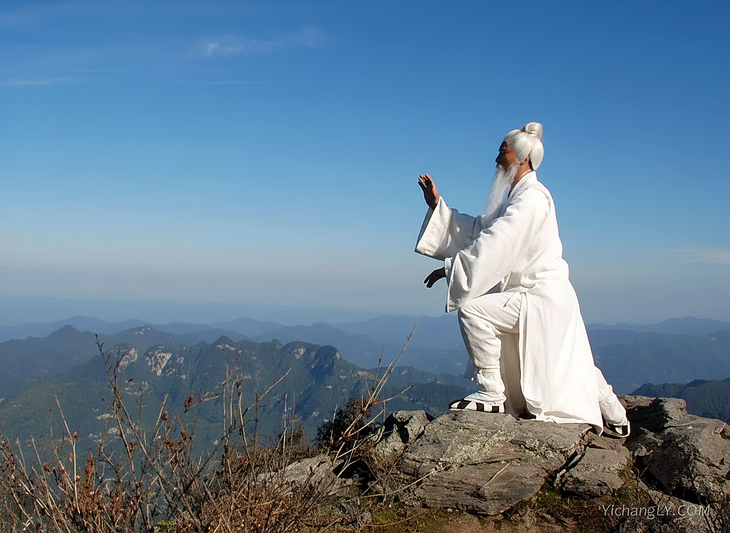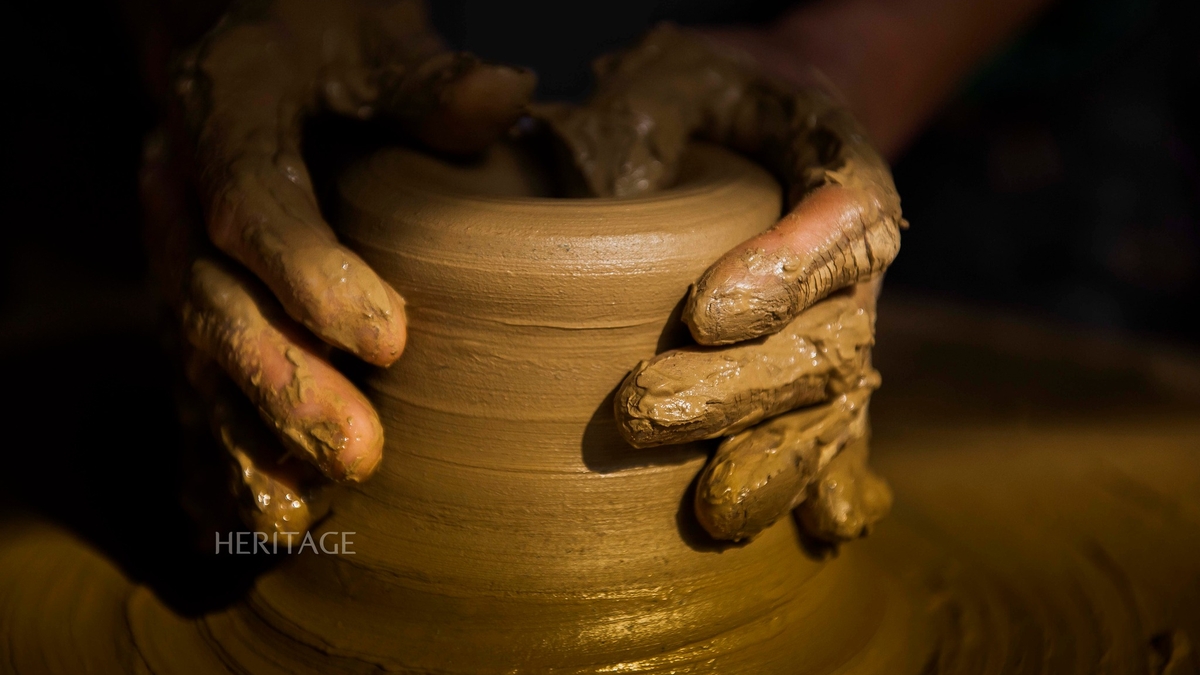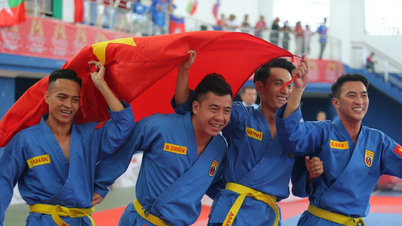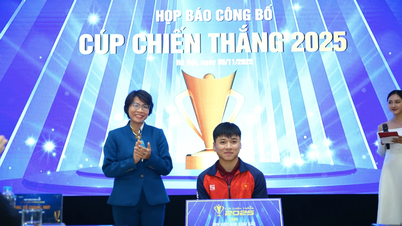
Zhang Sanfeng is a familiar character in Chinese movies, adapted from the writings of Jin Yong - Photo: XN
Kim Dung favors Taoist martial arts schools
"No one before him can compare, no one after him can keep up" is how Kim Dung described the character Truong Tam Phong when he created this character in the novel "Ỷ Thiên Đồ Long Ký".
With such a description, Kim Dung affirmed that Truong Tam Phong is the number one grandmaster in the history of Chinese martial arts.
From a mystical character of Chinese Taoism, through the pen of Kim Dung, Truong Tam Phong was honored as "the first" in the martial arts world, and the Vo Dang sect he founded was also raised to the same level as Shaolin Temple which was founded several hundred years earlier.
Not only Wudang, another martial art sect that Jin Yong favored was Quanzhen Sect. The founder of Quanzhen Sect, Wang Chongyang, was described as "invincible under heaven" in the two novels The Legend of the Condor Heroes and The Return of the Condor Heroes.

Kim Dung's character Chu Ba Thong (left) is considered to be adapted from Lao Tzu's simple and inactive image - Photo: SC
Zhou Botong, Wang Chongyang's junior brother, although a later generation, was also considered by Chinese literary circles to be an adaptation of "Lao Zi", with a life of inaction, accompanied by extraordinary intelligence in the form of an innocent person, untainted by worldly dust.
Throughout his novels, Kim Dung always promoted martial arts originating from Taoism, and called it the "genuine mystical" martial art of the Chinese people, while Shaolin kung fu was only called "foreign" (i.e. transmitted from outside to China).
The most powerful martial arts in Jin Yong's novels such as Nine Yin Manual (based on Lao Tzu's ideology), Tai Chi Sword (created by Zhang Sanfeng)... all have Taoist influences.
It is clear that the late Hong Kong writer had a great favor for the Taoist martial arts system. And this comes from Kim Dung's own philosophy of life - a person deeply influenced by Taoist ideology.
Promoting Lao-Trang ideology
Growing up in a traditional environment, Kim Dung soon approached Confucianism, Taoism, and Buddhism, the "three religions" at the forefront of Chinese religious culture.
But when he grew up, Kim Dung chose to stick with Lao-Trang for a long time because he thought this system of thought was more flexible, critical, and balanced.
In a conversation with Ming Pao newspaper in 1993, the famous novelist himself admitted that he often placed the Tao Te Ching next to his desk and “read it dozens of times,” because the idea of “doing nothing” helped him stay calm when facing public pressure.
Jin Yong studied law and international relations at Suzhou University and then continued to study traditional culture in Hong Kong, creating a broad theoretical foundation.
Yet he has repeatedly expressed skepticism about Confucianism’s rigidity. In a 2006 lecture at the University of Hong Kong, he commented that Confucianism “emphasizes social order to the point of confining the individual,” while Taoism encourages people to step back from conflict and observe the nature of things.
This view reflects the intellectual stature of a writer who has lived through political turmoil and witnessed the collision between power and personal life.
The influence of Taoism is not only in the choice of philosophy, but also in the attitude towards life. Many colleagues have commented that Kim Dung has a gentle working style, avoids extremes and always maintains a gentle tone even in heated debates.

Through Kim Dung's pen, Taoism is considered the number one in Chinese culture and martial arts - Photo: XN
Cultural researcher Yang Mingfeng (Peking University) assessed this temperament as “close to Lao Tzu’s spirit of non-confrontation”, with a tendency to turn tension into dialogue (quoted from the journal Sinology Studies , 2007). His ability to maintain a soft outlook is what made him a model intellectual in Hong Kong in the second half of the 20th century.
In the field of journalism, where competition and conflict of opinion are common, Jin Yong maintains a cautious and restrained attitude. When running the Ming Pao daily newspaper, he often intervened to reduce inflammatory language, believing that journalism should “follow nature, not forcefully guide public opinion.”
This view is based on chapter 57 of the Tao Te Ching, which emphasizes rule by simplicity and limited intervention to allow society to balance itself. That approach helped Ming Pao emerge as a moderate newspaper during Hong Kong's political turmoil in the 1960s and 1970s.
Regarding philosophy of life, Kim Dung repeatedly mentioned Trang Tu's concept of "great wisdom is like stupidity", considering it a measure when looking at people.
According to him, the louder an individual tries to prove his point, the more likely he is to fall into misconception. These statements, which appeared in the 2005 cultural dialogue anthology of the Chinese Academy of Hong Kong, show that he uses Taoism as a compass for social criticism.

Kim Dung's wisdom is based heavily on Taoist classics - Photo: CN
This spirit of humility is also reflected in his frequent refusal to accept the title of “martial arts master”, believing that all worship must be placed within a limited scope.
In a 2010 interview with Phoenix Television, he said that Lao-Zhuang philosophy “helps people accept impermanence without despair,” which is especially helpful in old age when friends gradually fade away.
Jin Yong's novels are widely popular and captivate people's hearts not only because of their engaging plots and typical character development, but also because of Jin Yong's classic writing style that expresses profound thoughts and philosophies.
And among them, Taoist ideology is perhaps the most prominent factor, creating countless masters, heroes, as well as a profound philosophy of life - through martial arts.
Source: https://tuoitre.vn/vi-sao-kim-dung-de-cao-cac-phai-vo-dang-toan-chan-2025111110053976.htm





![[Photo] Prime Minister Pham Minh Chinh chairs a meeting on housing policy and the real estate market.](https://vphoto.vietnam.vn/thumb/1200x675/vietnam/resource/IMAGE/2025/11/11/1762838719858_dsc-2107-jpg.webp)
![[Photo] Chu Noodles - the essence of rice and sunshine](https://vphoto.vietnam.vn/thumb/1200x675/vietnam/resource/IMAGE/2025/11/11/1762846220477_ndo_tl_7-jpg.webp)

























































































![Dong Nai OCOP transformation: [Article 4] Reaching national standard products](https://vphoto.vietnam.vn/thumb/402x226/vietnam/resource/IMAGE/2025/11/11/1762825820379_4702-cac-san-pham-trai-cay-chung-nhan-ocop-nongnghiep-174649.jpeg)



![Dong Nai OCOP transition: [Article 3] Linking tourism with OCOP product consumption](https://vphoto.vietnam.vn/thumb/402x226/vietnam/resource/IMAGE/2025/11/10/1762739199309_1324-2740-7_n-162543_981.jpeg)






Comment (0)